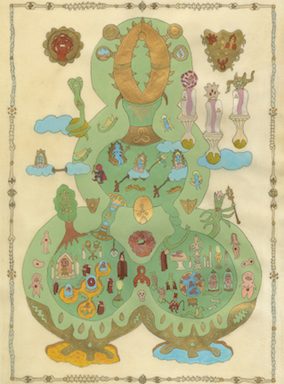Kudos to these faculty, staff and programs
Do you have a spotlight item to share with the NAU community?
E-mail your announcements to Inside@nau.edu, or use our online submission form.
- Successful Student ranked NAU No. 6 in The Best Online Early Childhood Educations Bachelor’s Degree Programs. The rankings are based on the quality of the program, types of courses provided, faculty, rankings, awards and reputation.
- John Paul Roccaforte, a senior research specialist with the Ecological Restoration Institute, led a study that evaluated post-fire ecological resiliency in mixed-conifer forest stands. The study compared forest stands that were thinned before the Wallow Fire in 2011 to untreated sites five years after the fire. The results are published in the article “Delayed tree mortality, bark beetle activity, and regeneration dynamics five years following the Wallow Fire, Arizona, USA: Assessing trajectories toward resiliency,” in Forest Ecology and Management.
- Nursing Schools Almanac ranked NAU No. 18 in the Top 75 Nursing Schools in the Southwest. The rankings are based on the academic prestige and perceived value, the breadth and depth of nursing programs offered and student success on the National Council Licensure Examination (NCLEX).
- Rodrigo de Toledo, visual communications professor, is having an opening reception for his new solo exhibition “The Myth of the Incomplete Self: A Psycho-Archaeological Codex” at 6 p.m. Jan. 12 at the Coconino Center for the Arts. The main focus of his work looks at the core of the human structure, our incompleteness. Healsowill hold an artist talk at his exhibition, “The Incomplete Creature,” at 7:30 p.m. Jan. 18. The exhibition is free and will be open from 11 a.m. to 5 p.m. Tuesday through Saturday from Jan. 15 to Feb. 9.
- Creative writing professor Nicole Walker’s book “Sustainability: A Love Story” was named one of The Best Books About Climate Change of 2018 by the Chicago Review of Books and was on Book Authority’s list of 29 Best New Sustainability Books to Read in 2019. The book questions how can we save the planet when we have a hard time saving ourselves.
- Robert Kellar, associate professor of practice in the Center for Bioengineering Innovation, was elected president of the Surfaces in Biomaterials Foundation. The foundation explores creative solutions to technical challenges at the biointerface by fostering education and multidisciplinary cooperation among industrial, academic, clinical and regulatory communities.
- David Trilling, associate professor of astronomy, gave an invited talk at the 6th annual Thirty-Meter-Telescope (TMT) Science Forum in Pasadena, California. His talk “Observing the Solar System with TMT,” discussed highlights of the solar system from the National Optical Astronomy Observatory’s Extremely Large Telescope Key Science Program development with an emphasis on topics and discovery space available with the TMT.
- Bettie Coplan, associate clinical professor, was selected for the American Academy of PAs–Physical Assistant Education Association (AAPA-PAEA) research fellowship. The program runs for a year and strengthens the research skills and productivity of the PA faculty. By the end of the program, participants will have completed their research and have their results ready for publication and presentation. Coplan’s research looks at PA programs that use holistic admissions and have high proportions of students from underrepresented groups. She will evaluate why these programs are successful at bringing in students, what their processes are and the culture each program has created.
- Online Masters ranked NAU No. 10 in The Best Online Master’s in Communication Programs. The rankings are based on academic quality, student success and affordability.
- Bill Carter, professor of practice of creative media and film, traveled to Puerto Rico with a team of MBA students from MIT Sloan School of Management to make the documentary GO Lab Puerto Rico. The documentary takes place after Hurricane Maria and follows the team’s efforts on the two microgrid-related projects that will improve residency by restoring electricity.
Bruce Hungate, director of the Center for Ecosystem Science and Society, was appointed chair of the Department of Energy’s Biological and Environmental Research Advisory Committee (BERAC). He previously served as vice-chair of the committee. The committee is charged with advising the DOE’s director of the Office of Science on the scientific issues around development and implementation of the agency’s $700 million Biological and Environmental Research program. Hungate’s chairmanship will run through 2021.



